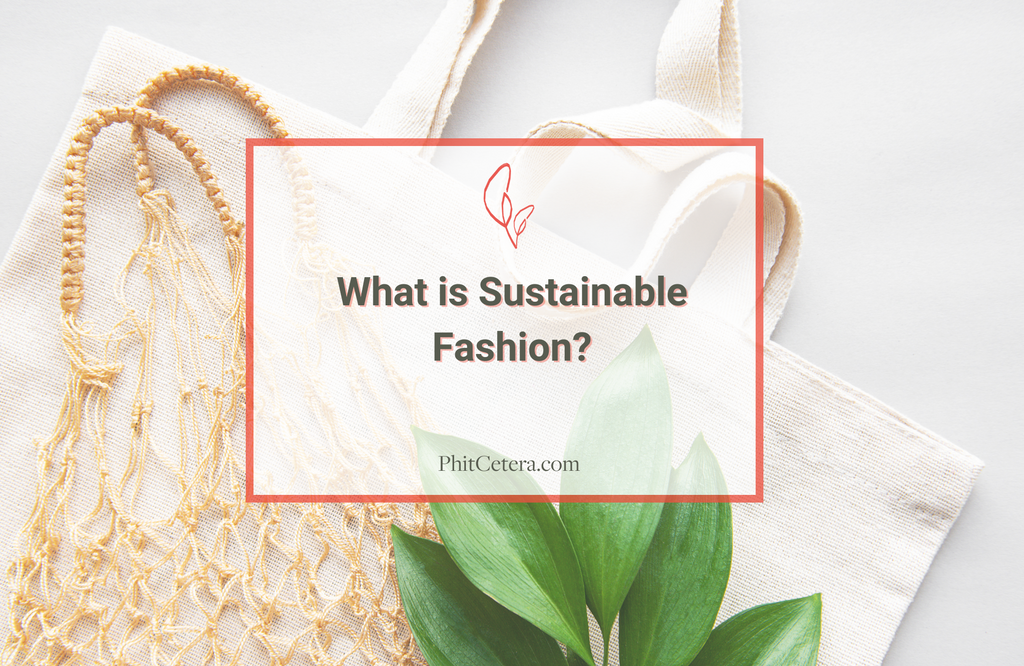
To understand what sustainable fashion is, you must first understand what it is NOT!
It is not designed to be consumed quickly at cheap prices. It does not exploit workers, deplete the earths natural resources at exponential rates, nor does its production result in an overwhelming amount of waste. And it does not potentially churn out as many as one new collection every week to drive mindless consumption.
Sustainable fashion is designed, manufactured and used in ways that are environmentally friendly.
It concerns more than just addressing fashion textiles, it addresses the entire manner in which clothing is produced. It is mindful of its social, environmental and economic factors. The simple definition of sustainability means meeting our own needs without compromising the ability of future generations to meet their own.
Sustainable fashion can take many forms and we make it easy for you to understand by breaking down many of the forms here.

Low Impact Natural and Organic Materials are probably the most obvious forms of sustainable fashion.
Natural fibres such as; hemp, bamboo, linen, leather and cellulose fibres are fibres originating from plant sources. These natural and organic materials biodegrade and can compost cleanly back into the soil (assuming there are no harmful residues left in the fabric). In comparison to petroleum-derived synthetics that will not biodegrade and instead sit in landfills, continuously emitting chemicals and fumes into the environment.

Locally made clothing is more eco-friendly in that carbon emissions and air pollution are significantly reduced with decreased transportation.
It also goes without saying; purchasing garments produced locally or nationally helps support the local or national economy.
Other sustainable benefits include, less packaging, more ethical; fewer steps in the supply chains lends to more transparency, and products produced locally are generally produced in smaller batches lending to less waste overall.

Ethical fashion is garment design, production, and distribution that focuses on reducing harm to people and the planet.
Ethical fashion is concerned with social impact and the ethics behind a brands label. The fashion industry is known as being notorious for underpaying employees and providing unsafe working conditions. Ethical fashion brands are transparent in their processes and answer the questions "Who made my clothes?" and "Is that person working in safe conditions and being paid a fair wage?"
Furthermore, ethical fashion is based on the "do no harm principle" and encompasses production processes that are both morally right and acceptable. It includes fair trading, animal protection, working conditions and ecological aspects of production.

Using pre-existing or recycled materials to make clothing is an ideal sustainable option.
By actively turning waste into fibres and using recycled materials in fashion enables both designers and consumers to interact with waste as an abundant resource, rather than continuing to exhaust the earth finite resources. With significant earth-friendly textile developments, designers have the option to create styles using recycled materials over and over again without having to tap into new resources.
As a consumer, look for fabrics made of recycled fibres like; recycled nylon, recycled polyester, recycled cotton or clothes made from dead stock. These are materials created, but never used and would otherwise become waste.

Instead of opting to purchase fast fashion pieces that tend to be less expensive and meant to be thrown away quickly, look for higher quality items.
Buying high quality garments, that are normally more expensive, allow you to enjoy your clothing time and time again; year after year. And they will generally last longer in your wardrobe; preventing them from prematurely ending up in landfills.
In addition, taking good care of your clothes can make a big positive impact - wash clothes in cold water, and hang them to dry. Mending holes and spot cleaning stains, making small alterations are some other easy ways to make your garments more sustainable and out of landfills longer.




